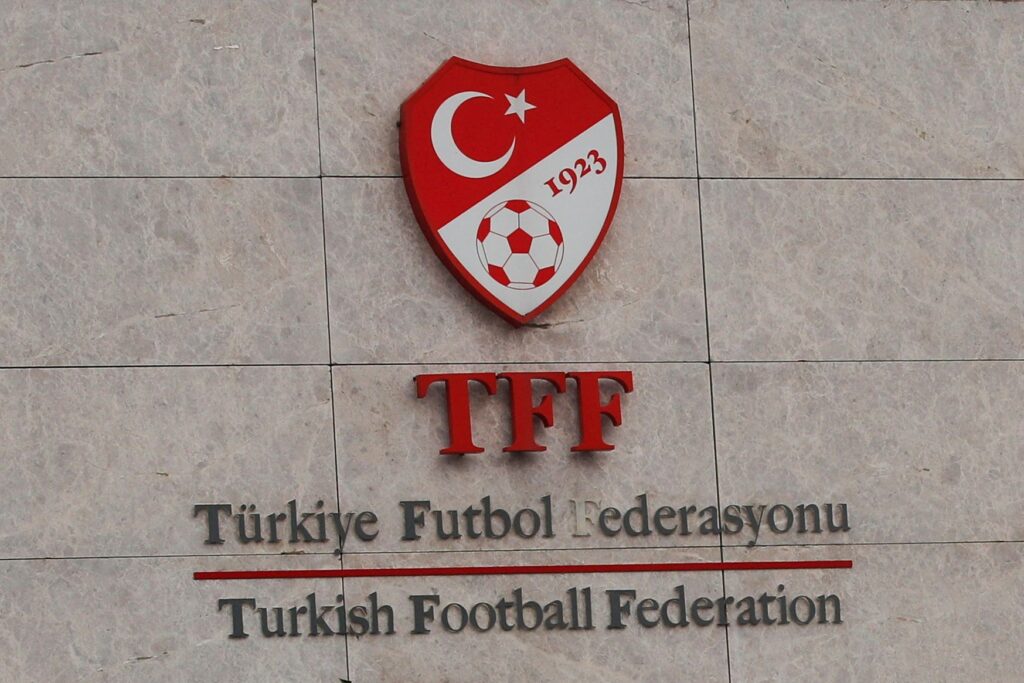Turkish football finds itself mired in an unprecedented integrity crisis after the Turkish Football Federation (TFF) publicly revealed on 27 October 2025 that a staggering 371 of its 571 active referees held betting accounts, while 152 were found to have actively placed wagers. Among those implicated are seven top-tier referees, 15 top-level assistants and dozens of lower-division officials, underscoring a problem that spans the entire match-official ecosystem.
TFF President İbrahim Hacıosmanoğlu described the findings as “a milestone for Turkish football” and vowed swift disciplinary action. The scale of the violations is shocking: one referee reportedly placed 18 ,227 separate bets over five years, while 42 officials wagered on more than 1,000 matches each.
The scandal breaks open deep-rooted suspicion among clubs and fans that match officials might be compromised by betting interests. Turkish clubs such as Fenerbahçe and Galatasaray, long vocal about perceived referee bias and unfair officiating, welcomed the investigation as proof of systemic corruption. “It confirmed our years of concern,” said Fenerbahçe president Sadettin Saran.

The TFF’s probe draws from data shared by state institutions and covers a five-year period of wagers and match-officiating. Under article 57 of the TFF disciplinary code, referees found guilty of gambling may face bans ranging from three months to one year. However, the magnitude of the problem has raised questions about the adequacy of such penalties given the breach of both domestic and international integrity rules.
Legal repercussions may also follow. The Istanbul Chief Public Prosecutor’s Office confirmed that it had merged multiple investigations into the refereeing body and bookmakers, citing violations of Turkey’s national laws on sports clubs, gambling and match-fixing. Prosecutors expect that some cases could escalate to criminal charges if links between bets, match manipulation and organised crime are established.
The scandal has not just tarnished referees’ reputations; it has shaken public trust in the entire officiating structure. Commentators say the event threatens the credibility of the Süper Lig and even Turkey’s prospects of hosting major international tournaments. One fan comment on Reddit said, “This just confirmed my suspicion: if referees bet, everything is tainted.”
This crisis is also a stark reminder of the epidemic of match-fixing and manipulation that Turkish football has faced before. The 2011 scandal involving over 90 players, coaches and officials remains a landmark blemish. With the latest revelations, the TFF appears to be embarking on a radical clean-up. Hacıosmanoğlu announced that all implicated referees will be referred to the disciplinary board immediately and cooperation with FIFA and UEFA is underway.

Nevertheless, clubs demand more transparency. Galatasaray’s president, Dursun Özbek, insisted that full disclosure of referees’ identities, matches officiated and details of their betting activity must be published to restore club and fan confidence. The absence of names has drawn criticism and scepticism, especially among observers worried about cover-ups and partial accountability.
Beyond the gambler incidents, the scandal raises questions of deeper structural failure: what monitoring mechanisms exists for referees? How did so many even open betting accounts while under the scrutiny of the federation? Analysts say the answers point to weak internal governance, lack of real-time oversight and complicity or negligence at multiple levels.
For Turkish football, the crisis opens a critical fork in the road. If handled decisively—with public prosecutions, firm bans and systemic reform—it could mark a turning point toward increased integrity. If not, it threatens to deepen cynicism, weaken TFF’s credibility and undermine the sport’s commercial value domestically and in Europe.
The scandal’s timing is also damaging. Turkish clubs seeking greater access to European competition may find their credentials questioned amid concerns about refereeing fairness. Sponsors and broadcasters may demand stronger safeguards before investing. Resistance to change, coupled with historic corruption, places the TFF under immense pressure.

In response, the federation has proposed several reforms: mandatory ethics and anti-betting training for referees, enhanced financial monitoring of officials, and real-time betting-pattern alerts tied to match assignments. One senior official described the scandal as “a chance to cleanse the system or watch it collapse under the weight of its own mistrust”.
Football fans in Turkey are watching closely. A Reddit user summarized the sentiment succinctly: “Until names are published and actions taken, we’ll continue seeing each decision as rigged.”
What happens next may reverberate beyond borders. FIFA and UEFA have strict rules prohibiting referees from holding betting accounts, and they may impose additional sanctions or oversight on Turkey if domestic measures prove insufficient. Some legal bodies in Turkey have already begun examining whether the betting activity crosses into criminal match-fixing territory.
In all, Turkish football stands at a crossroads. Whether the sport, its governing bodies and its stakeholders act with transparency and resolve could determine whether this scandal becomes a catalyst for reform or another chapter in a damaging legacy of corruption.

